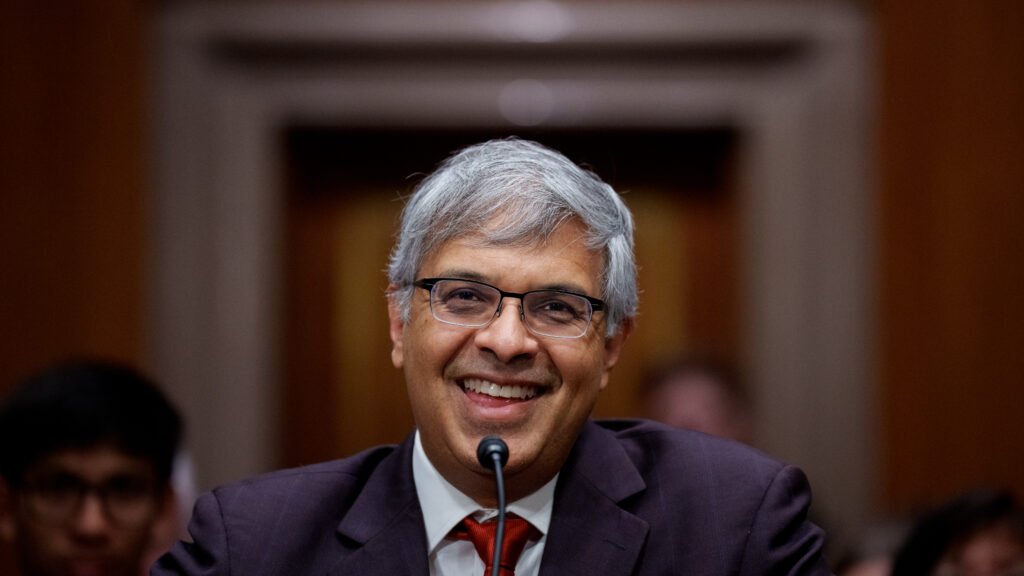The Senate has voted along party lines to confirm Stanford professor Jay Bhattacharya as the new director of the National Institutes of Health (NIH), the largest funder of biomedical research globally. With a vote of 53-47, all Republicans supported Bhattacharya in his new role. This marks the end of a relatively smooth confirmation process for Bhattacharya, who emphasized his commitment to improving the nation’s health during his confirmation hearing back in March.
In a similar vein, President Trump’s nominee for the Food and Drug Administration, Johns Hopkins professor Marty Makary, is set to face a Senate vote later today. Mehmet Oz, who was chosen to lead the Centers for Medicare and Medicaid Services, also passed a Senate committee vote earlier on Tuesday.
Bhattacharya’s appointment comes at a crucial time for the NIH, as the agency is facing budget cuts and a decline in staff morale. Layoffs, disruptions to grant review processes, and the departure of key leaders like Larry Tabak, Michael Lauer, and Eric Green have left many within the organization feeling unsettled.
The Trump administration has recently used NIH funding as a political tool by halting research at Columbia University and the University of Pennsylvania over various issues. Additionally, the administration has pledged to reduce indirect funding to universities that support scientific research.
During his confirmation hearing, Bhattacharya expressed his support for vaccines, stating that he is convinced they do not cause autism. However, he did not rule out the possibility of further studies on the subject. He also highlighted his commitment to funding chronic disease research and fostering a culture of free speech and dissent within the agency.
A health economist by training, Bhattacharya gained prominence for his studies on the flaws in the U.S. healthcare system, and later for his contrarian views on Covid-19. He co-authored a controversial memo advocating for herd immunity as a strategy to combat the pandemic.
As Bhattacharya takes on his new role at NIH, he faces the challenge of navigating a complex and evolving healthcare landscape while striving to uphold the agency’s mission of advancing medical research and improving public health.


